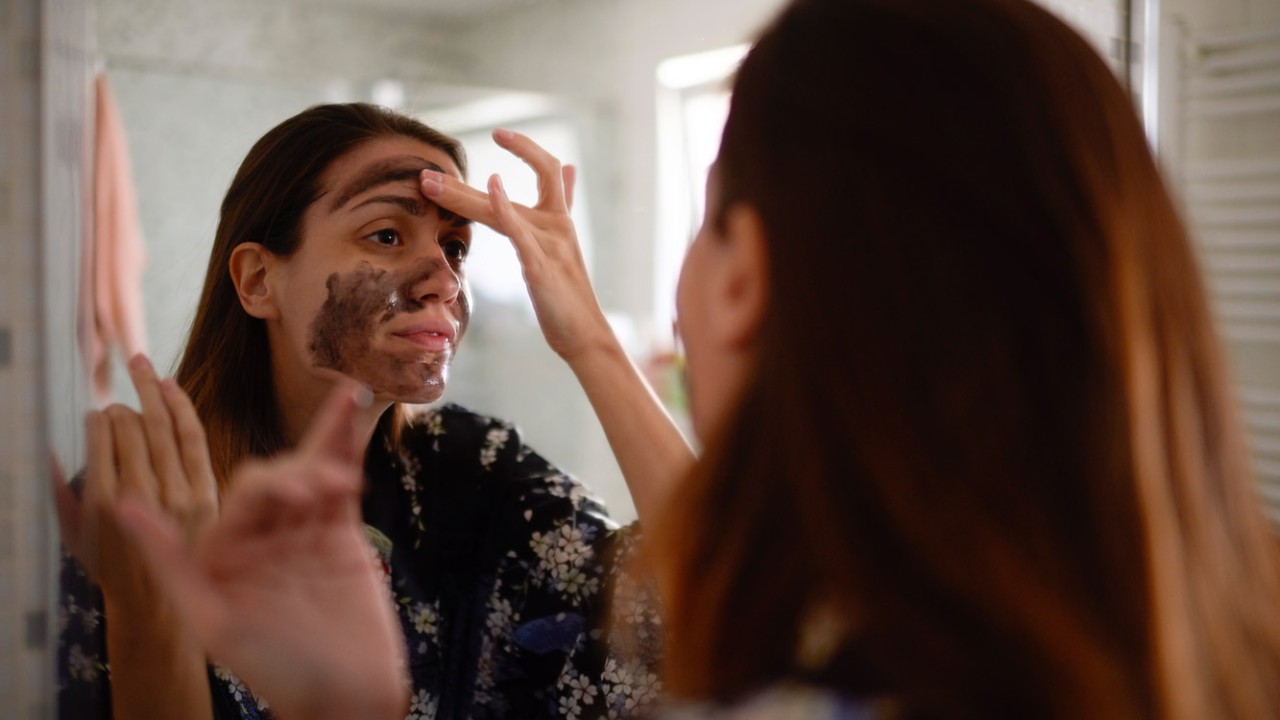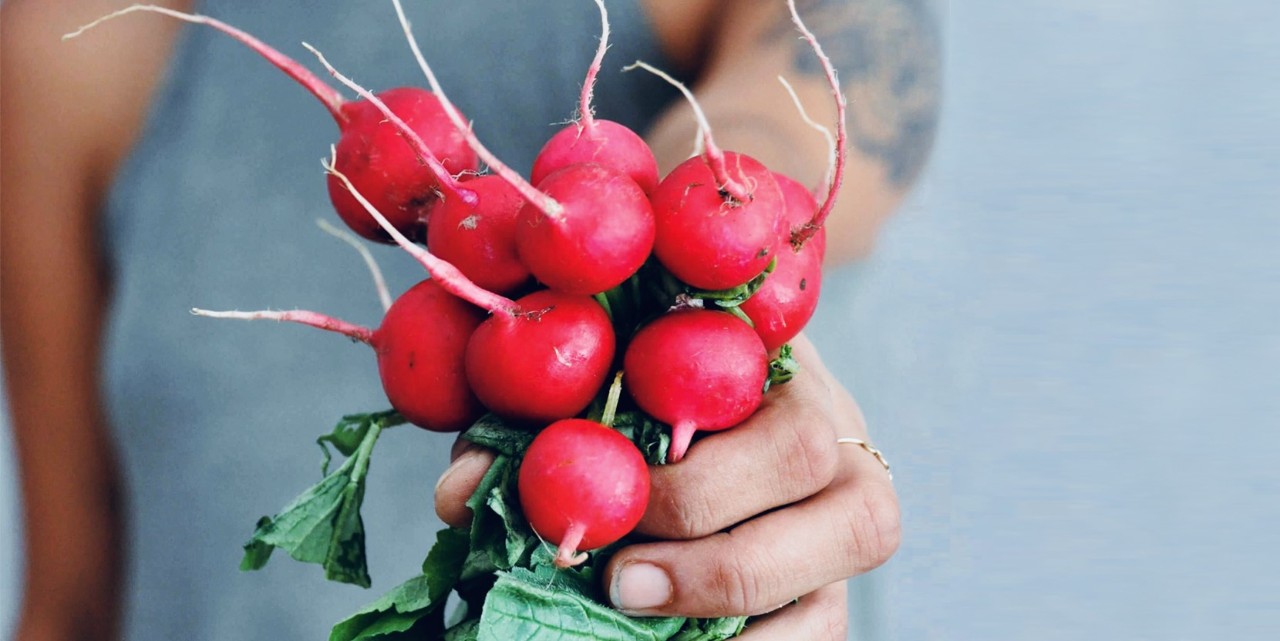Lemon, green tea & co.: home remedies to reduce blood pressure
It is estimated thatone in four adults in Switzerland have high blood pressure.1 If you act early, you can improve your values – with a healthy lifestyle and simple home remedies.

Stress, an unbalanced diet, too little exercise and regular alcohol consumption: Living unhealthily is bad for your blood pressure. That’s why Dr Stefanie Siegfried, a specialist in internal medicine, asks about the patient’s lifestyle and diet at the start of every consultation and emphasises how much they affect our blood pressure.
“A 55-year-old man had been taking blood pressure tables for ten years. Thanks to a change in lifestyle, we can do without it today.”
An example from her practice shows how changing your lifestyle can make a huge difference: A 55-year-old man, who owned his own company and was exposed to a lot of stressat work, suffered from high blood pressure for years. He regularly drank large quantities of alcohol to cope with the stress. When he stopped drinking, he lost 20 kg and slept much better. This meant he had more energy and the strength to face the challenges of daily life. He got enough exercise through his job. “The man needed blood pressure tablets for over ten years. By changing his lifestyle, he doesn’t need the medication any more,” says Siegfried.
Lowering blood pressure naturally - 5 tips
The exact causes of hypertension have not been scientifically proven, but there are risk factors that promote the illness, such as lack of exercise, being overweight, an unbalanced diet, alcohol, tobacco and stress. Generally speaking, the sooner you take action against high blood pressure, the lower the risk of secondary diseases such as heart attacks or strokes.
Five factors can help lower your blood pressure naturally:
-
Sport and exercise
Getting regular exercise helps keep high blood pressure at bay. Even in old age, exercise effectively lowers blood pressure. The rule of thumb is to do 30 to 45 minutes of endurance training three times a week.
-
Weight
Being overweight increases the risk of high blood pressure, while a healthy body weight reduces the risk.
-
Nutrition
A balanced diet also counteracts high blood pressure. Opt for foods rich in potassium, which are mainly found in Mediterranean cuisine.
-
Alcohol and smoking
Alcohol and tobacco both increase blood pressure temporarily. Giving up cigarettes or wine or at least reducing your consumption of them will alleviate your blood pressure.
-
Stress
Physical exertion, but also tension and stress increase blood pressure. Make sure to take enough time to rest during the day.
The good news is that you can prevent high blood pressure. If high blood pressure runs in your family, you should take your blood pressure regularly. “I recommend that patients over the age of 30 should check their blood pressure regularly. At best, twice a year. You can get it checked in the pharmacy or use your parent’s monitor,” says Dr Siegfried.
Foods that lower blood pressure
Some foods have a direct or indirect positive effect on blood pressure and the blood vessels. Can lemons, beetroot or garlic really help to lower blood pressure? Four foods that help lower blood pressure naturally and their effects:
-
Lemon
Various studies have proven that lemons help reduce blood pressure. Rich in vitamin C, this tangy fruit helps strengthen the immune system and is good for the blood vessels. Vitamin C consists of ascorbic acid, which prevents the blood vessels from constricting. The peel contains the polysaccharide pectin, which also has a positive effect on the cardiovascular system.
It’s simple: Add a little lemon vinegar, lemon juice and honey to a glass of water. Drink a glass in the morning and evening. Be careful, because too much lemon juice can over-acidify the body, which has undesirable side effects.
-
Garlic
The allicin contained in garlic, a component of amino acids, is not only responsible for the bulb’s strong smell, it also improves the fluidity of the blood and thus the circulation of the body.
It’s simple: Use fresh garlic as seasoning while cooking. If you like the taste, you can also eat individual cloves raw.
-
Ginger
Ginger is another multi-talented spice. It dilates blood vessels and has a blood-thinning effect, which counteracts high blood pressure.
It’s simple: Use fresh ginger as a spice for cooking or add to hot water to drink as a tea.
-
Beetroot
Beetroot contains nitrate, which is reduced by saliva to nitrite, which in turn dilates the blood vessels and thus lowers blood pressure.
It’s simple: drink a glass of organic beetroot juice for breakfast.
Teas to lower blood pressure
Green tea is said to have many positive properties, including the effect of lowering blood pressure. This is due to the catechins in the tea plant, which dilate blood vessels and therefore boost blood circulation. An effective alternative to green tea is white tea, because it is processed less and contains less caffeine. Herbs such as valerian, lemon balm and lavender also have a positive influence on blood pressure.
Other foods that help lower blood pressure
- Olive oil
- Cabbage
- Horseradish
- Spinach
- Asparagus
- Peas
- Apricots
- Nuts such as pistachios or walnuts
- Coconut milk
- Tomato purée
- Magnesium
How does salt influence blood pressure?
It is undisputed that too much salt in food increases blood pressure. This is because salt draws water from the body, which increases the volume of blood and causes the pressure in blood vessels to rise. So it’s worth reducing your salt intake if you have high blood pressure. Studies have shown that going without salt entirely for at least four weeks results in a noticeable reduction in blood pressure.
High blood pressure: know the symptoms
Most people with high blood pressure don’t show any symptoms, which is why it is often diagnosed late. If you have the following symptoms, you should get your blood pressure checked as soon as possible:
- Headache
- Dizziness
- Tightness in the chest
- Severe anxiety
- Shortness of breath
- Nosebleeds
- Pulsing sensation in the neck or head

Dr Stefanie Siegfried is a specialist in internal medicine. She runs her own practice in Bern. She also works as an affiliated doctor at the Hirslanden Salem hospital.


